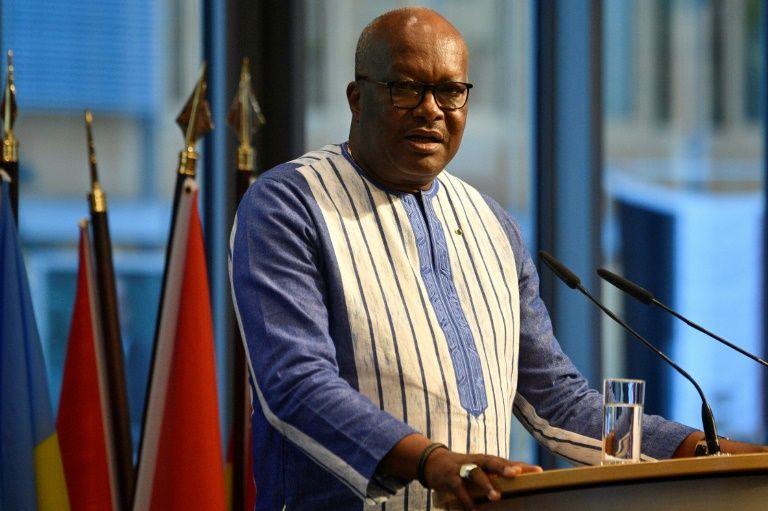
Burkina’s President Kabore set to win party election backing despite problems

Burkina Faso President Roch Marc Christian Kabore is set to win his party’s support on Saturday to contest upcoming elections despite his government’s failure to halt a bloody jihadist insurgency.
The grim public mood today is the polar opposite from the optimism that swept the country in 2015, when Kabore rode to electoral triumph with more than 53 percent of the vote.
Since then, a jihadist offensive has advanced across the nation, igniting ethnic squabbles, claiming at least 1,100 lives and forcing nearly a million people from their homes.
Nearly a third of the country’s provinces are in a state of emergency. Swathes of territory are de-facto no-go areas, and more than 2,000 schools have closed. The flow of foreign tourists has dried up, dealing a further blow to one of the world’s poorest economies.
Kabore’s performance during this mounting crisis is now under closer scrutiny as the presidential ballot looms in November.
“The surge of attacks and rising violence are due to the fact that there hasn’t been an appropriate response to the threat,” said security expert Mahamoudou Savadogo.
Despite this, Kabore’s appointment as candidate for the People’s Movement for Progress (MPP) party, meeting on Saturday in a rally of 3,000 people at Ouagadougou’s sports complex despite the coronavirus pandemic, seems assured.
Kabore “is the best-placed candidate to be our flag bearer,” said the party’s executive secretary, Lassane Savadogo.
The 63-year-old is also expected to secure the backing of a coalition of several dozen parties called the Alliance of Parties of the Presidential Alliance, or APMP.
“Our goal is to have him elected on the first round and with a wider margin than in 2015. We want to go above 60 percent,” declared Lassane Savadogo, who shares the same name as the security expert.
In contrast, in one of the rare opinion polls to be conducted in Burkina Faso, a survey published last month by an NGO called the Centre for Democratic Governance (CGD), found 63 percent of respondents said they were “not satisfied” with Kabore’s performance.
Social discontent and the coronavirus pandemic are other factors in his slump.
Kabore was close to former president Blaise Compaore, who was forced out in October 2014 by popular protests after 27 years in power.
Other big names likely to stand in the elections are closely associated with the Compaore era, such as former prime minister Kadre Desire Ouedraogo and Eddie Komboigo, who heads Compaore’s party, the Congress for Democrats and Progress, which was excluded from the 2015 vote.
The crowded field is also likely to include opposition leader Zephirin Diabre, who was the runner-up in 2015, and Tahirou Barry, who stepped down as minister in Kabore’s first government.
Political analyst Drissa Traore said Kabore can point to some successes, notably in development of Burkina’s road nework, but otherwise his record was sketchy.
“Even so, he remains the frontrunner, given the opposition’s problems in uniting,” Traore said.






